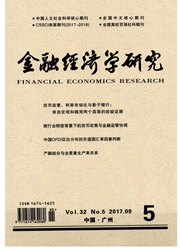

 中文摘要:
中文摘要:
从动态内生视角采用动态面板数据和SYS—GMM估计方法,通过对2001—2010年629家上市企业进行实证研究,发现显性激励(货币薪酬和高管持股)并没有促进管理者利益与投资者利益趋于一致,而隐性激励(在职消费)使管理者利益与投资者利益背道而驰;货币薪酬和高管持股与公司绩效具有很强的动态内生性,控制动态内生性后货币薪酬和高管持股与公司绩效并不存在显著关系;在职消费与绩效显著负相关,前期绩效对在职消费存在显著正反馈效应,当期绩效对在职消费存在显著负反馈效应。
 英文摘要:
英文摘要:
This paper wants to use SYS-GMM method and dynamic panel data to empirically study the relationship between executive incentive and company performance. The data come from the research of 629 listed companies from 2001 to 2010. The results reveal that:the explicit incentive (monetary remuneration and managerial ownership)does not encourage managers and investors'interests to be of the same improvement, while implicit in- centive (perquisites)makes managers and investors'interests run in opposite directions. Mo- netary remuneration and executive shareholding have strongly dynamic endogenous nature with company performance. When .controlled the dynamic endogenous nature, monetary remuneration and executive shareholding have no significant relationship with performance; perquisites are significantly negatively related to performance;pre-performance has positive feedback effect to perquisites; current-performance has negative feedback effect to perquisites.
 同期刊论文项目
同期刊论文项目
 同项目期刊论文
同项目期刊论文
 期刊信息
期刊信息
